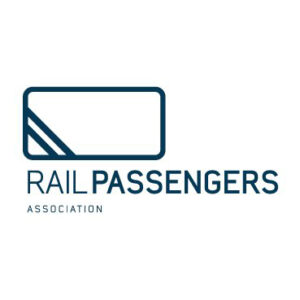 WASHINGTON — More than three-quarters of Americans want the federal government to invest more in the national rail passenger network, according to results of a poll released by the Rail Passengers Association.
WASHINGTON — More than three-quarters of Americans want the federal government to invest more in the national rail passenger network, according to results of a poll released by the Rail Passengers Association.
The poll conducted by Change Research for the RPA found 78% of respondents said a strong passenger rail system in the U.S. is “important,” while 66% said they support adding more routes to the current rail network.
Rail Passengers Association President Jim Mathews said in a press release that the support shown in the poll “s broad-based across all demographics – Republicans, Democrats and Independents, men and women of all ages and races, and even rural or urban living.”
Additional information on the association website noted that two-thirds of those polled think there should be a national railroad plan, and 66% think there should be a National High Speed Rail plan; that 64% support using tax dollars for maintaining tracks and trainsets; and that only 27% think Amtrak should be expected to make a profit.
The poll was conducted in November 2021 and involved 1,280 registered voters from across the United States.






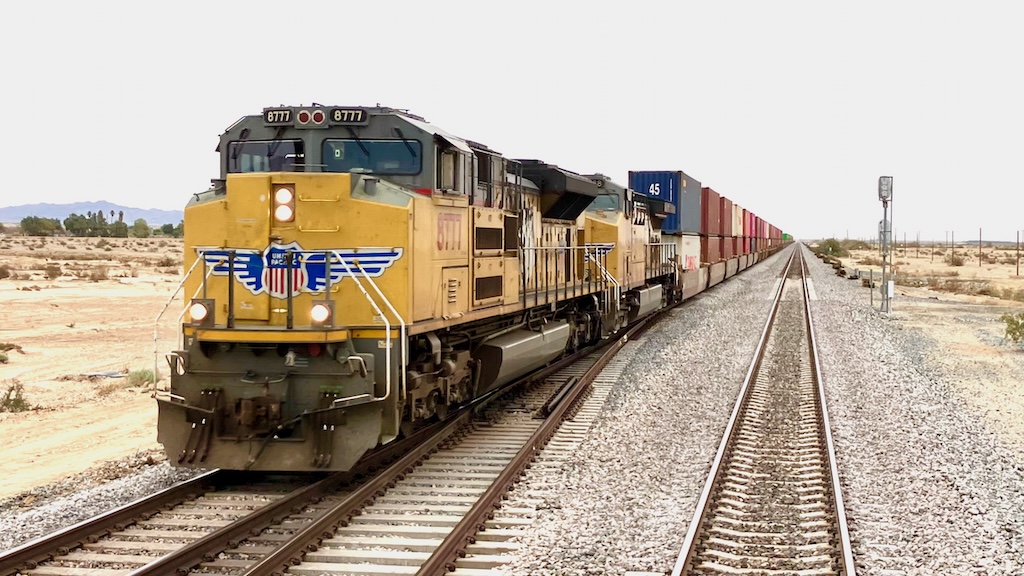
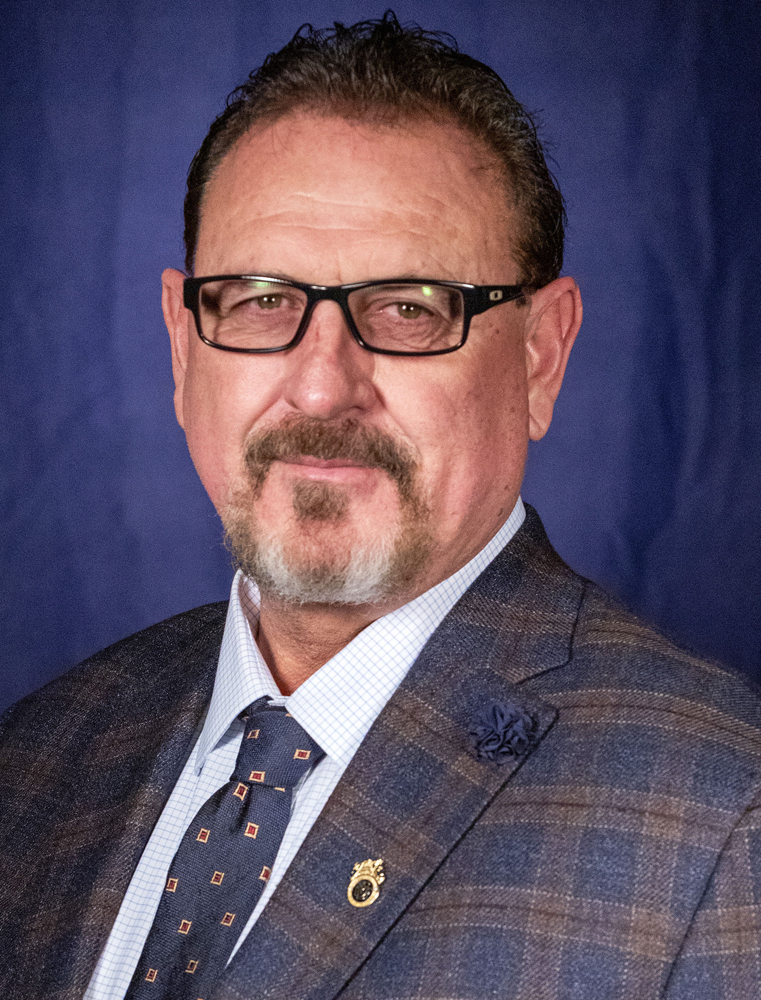
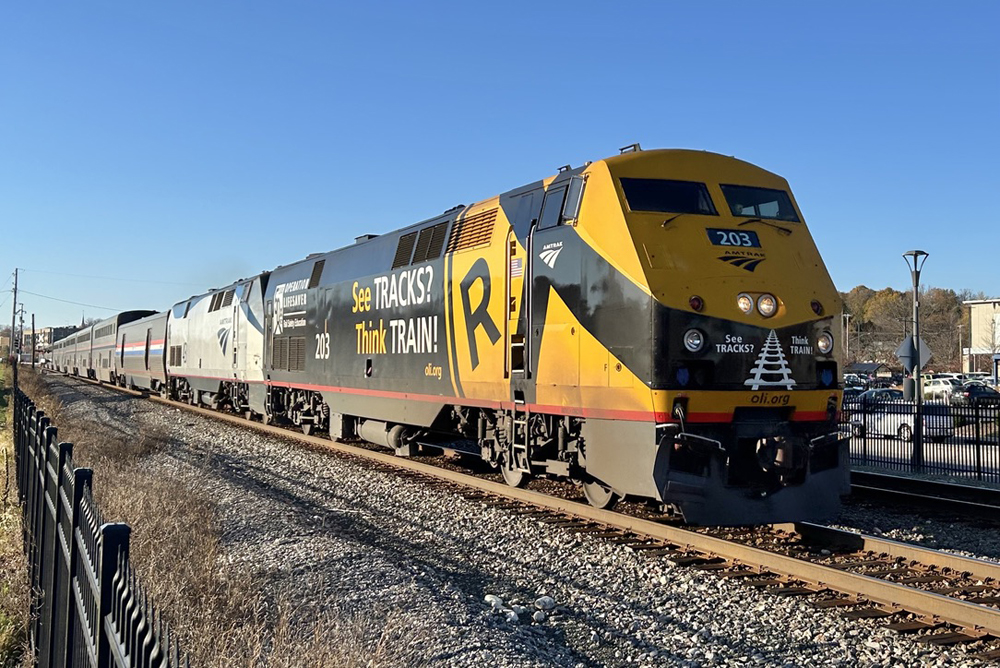
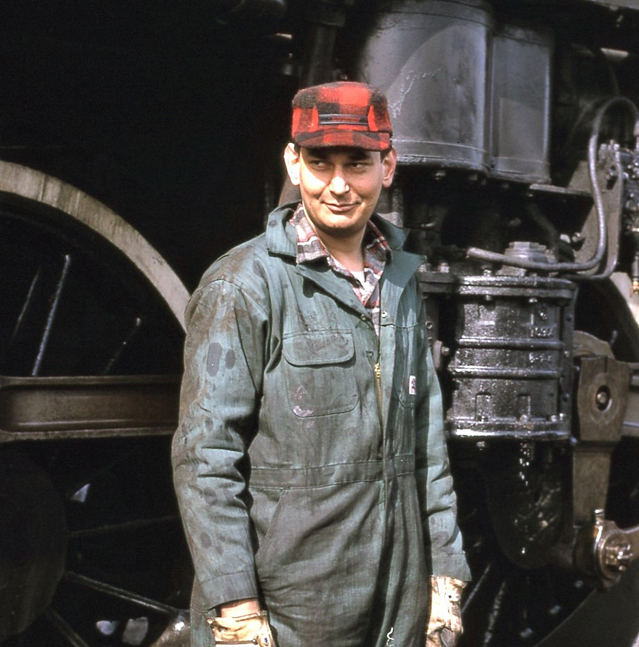




I must say that I find it disturbing that so many Americans are now willing to grasp a socialist means of politics and economics in a vain effort to support government-run, monetarily upside-down efforts.
The US cannot expect excellence until we all embrace the fact that the government does NOTHING with excellence.
And Amtrak is my Exhibit A.
Well maybe if govt had been as generous with taxpayer money as it was with establishing the hwys & aviation industry to ensure its “self sufficiency” (LOL) or helped the RR’s cover their losses especially after they ended mail contracts which is what kept a lot psgr routes operating we would have had a different scenario. These are the same circumstances that have brought the freight RR’s to their current state of being almost insignificant in the transportation industry.
And this still begs the question of whether or not government run passenger rail can be rationally justified. It’s a far less cost effective means of transportation than other modes, particularly because it’s so expensive and inflexible. Why all the passion to preserve it? There’s a reason why no private entity is in the business Rocky Mountaineer is not in the business. It’s a leisure vacation travel company, not a utilitarian daily mode of common transportation, as evidenced by the fares it must charge to be viable.
This survey must be discounted as faulty. The “78% of Americans” statistic proves the survey was clearly not conducted scientifically in any way. To claim 78% of Americans agreed, the survey would necessarily have to include all people over 18, as well as a significant number under the age of 18. The more accurate statement is most likely “78% of those we surveyed, who are already predisposed to favor spending on passenger rail, agreed that they still want more money spent on passenger rail.” In which case, the real news in the results is, why don’t the other 22% want more money spent?
One wonders how many of the pro passenger rail services would actually commit to riding same.
Such a poll is clearly irrelevant when you consider the source. RPA is no longer the NARP under Haswell we eagerly supported, as it’s nothing more than another K Street lobbying firm promoting it’s own version of realty.
Haswell had the moxie-and knowledge of the facts-to take on Amtrak and hold it accountable in Congress and in the media. Haswell did not burn-up association funds on building an empire of staff and on numerous travel excursions.
Why does RPA lack the intellectual integrity to admit all its polls are meaningless until Amtrak’s feet are held to the fire? No poll will stimulate funding or increase travel given the utter failure of corporate management and the Board of Directors, who view their responsibilities as if they were simply playing fantasy baseball.
This scenario of inexperience, incompetence, and lack of accountability perhaps is acceptable on Capitol Hill; but would not be in private industry, save for American and Alitalia.
How does anybody expect a passenger railroad to function when its leadership and Board lack railroad operating experience, let alone expertise in marketing, pricing, food/beverage, customer experience, advertising, etc? Who tolerated trains not scheduled where people want to go; poor asset utilization; inadequate maintenance to disrupt daily schedules? Why have management and its Board not been thoroughly condemned, admonished, and discharged for their pathetic decision to cut staff, particularly T&E, HR, and maintenance when over reacting and under planning at beginning of the pandemic? Obviously, nobody in Congress learned from when the same unaccountable management/Board team discharged seasoned managers and staff who actually knew how to run a railroad.
To paraphrase Casey Stengel, ‘does anybody know how to run a railroad?’
The problem, as I see it, is that there has been no plan at all. Decades of spending millions on studies that have led to very little service. Throwing wads of cash here and there that does little in the long run. Though some of the money Obama handed out did accomplish a few things. I. E. Michigan bought most of the line from Battle Creek to Detroit and worked to upgrade the line. But still no where near what is planned. The only ones that seem to benefit are the consultants and engineering firms that do all the studying and planning. Amtrak has put forth a plan but where are the equipment orders? They are overpaying for Siemens locomotives of questionable reliability. The new Siemens coaches look nice but the seats don’t recline??? How comfortable can that be? My back hurts thinking about it.
How many of us have been seeing “polls” such as this for decades? How much change have we seen? To be fair there are a lot more passenger trains now than, say, 1980. California has a small regional network. North Carolina runs a couple of intrastate trains. Florida is getting a private intrastate service. For goodness sake, even Nashville has a commuter railroad. The needle has been going in the right direction for about 30 years now. It’s been much slower than what we in the peanut gallery of passenger train promotion would prefer. It’s going to become downright glacial going forward as evidenced by the goings on in the Gulf Coast.
I agree with Mr Landey in that this is a “push poll” to push a POV, not necessarily provide some type of quantitative analysis.
As for the argument over what is subsidized and what isn’t, this is a very old argument that is repeated ad nauseum and needs to be set aside.
Can we all agree that in an open and representative government, almost everything and everyone get some sort of benefit of the taxes they pay? And in some cases where taxes don’t fund it, something private or fees does. Public “good” is just that, something that is decided by a shared consensus (like a referendum) that it is good for all and worth providing.
Can we agree that all of our states and municipalities value certain benefits from tax revenue than other entities do? That is called a democratic society.
What can be argued is exactly “how much” is enough for some service being supported via tax dollars. And is it being allocated in a way that is rational for what it provides? That is a huge argument because we (the public) only see what gets expended, but rarely see what comes in the door, so our value judgments are troublesome and we tend to fill the lack of information with our fears or philosophies.
Don’t want to get off topic so I will be brief corporate welfare has been going on for a long time oil, gas. banking/finance even the RR’s at one point, farm subsidies now go to corp farms & mega farmers they eliminated the real “small farmers” in the 80’s farm “crisis” so the subsidies could be concentrated on the remaining few. I am a member of RPA & yes they seem to have lost their focus which use to be solely pass rail & the seem to be letting a lot of Amtrak mgmts shenanigans slide.
The RPA does nothing but shill for Amtrak and its management “team” who don’t want the Amtrak RPA wants, namely a robust network of long-distance trains that feed and are fed from the corridor services. RPA shills for Amtrak because they have nowhere else to go. They have the naysayers in Congress on one side and the naysayers at the Right Wing think tanks like Cato and Heritage on the other. So they play footsie with Gardner as he systematically trashes the LD trains. And because RPA won’t blow the whistle on Gardner he operates in the shadows. Congress hasn’t a clue about passenger rail because they never ride. And with the international situation being what it is, Gardner knows he can continue his nasty game. I too used to be an RPA member. Gave it up in disgust with their support for the CAHSR money pit and their dumping on the freight railroads for not prioritizing Amtrak movements. They will not acknowledge that the problems of priority largely go away under normal operating conditions when there’s adequate mainline track capacity and operating flexibility.
Good point Mr Dupee, I pay for lightly used rural roads in my state which I will never use. Small airports in my state received funding from the infrastructure bill that have no commercial flights just private pilots who fly for “fun”. Leisure boaters use locks & dams/lift bridges free of charge. Although I do not support Amtrak’s vision of the nations taxpayers supporting the NEC while expecting the states to fund their own passenger rail service that’s the point where you are no longer on a level playing field.
Galen and Thoas — I anticipated your responses and in fact I welcome them! No argument to either Galen or Thomas. None whatsoever. Why should Amtrak pay for lift bridges where the waterways are only used by pleasre boats and yachts? Why has the long-established principle that the gas tax pays for highways gone away?
Why does just about nobody in America know about the subsidy called Essential Air Service?
I have no probem with subsidy for rail, except when it goes over the top like CalHSR or the Second Avenue Subway. Put all the subsidies on the table for all the modes, and all the corporate welfare sponsored by both parties. Let’s have an open discussion. All the rail subsidies in the world pale beside the corporate welfare of the so-called Green New Deal.
Meanwhile RPA should step back from advocating for any/ all rail subsidies including those that make less sense or no sense.
The term that comes to mind is “push poll”. Never trust a “push poll”.
If RPA, of which I’m a former member who quit in substantive disagreement, can sponsor a push poll, so can I. Here are my push poll questions:
“Should taxpayers in North Dakota pay for New York’s Second Avenue Subway, where ticket revenue would cover a very small fraction, say 3% to 5%, of the combined operational cost and capital recovery cost?”
“Would your support for Amtrak’s NEC change if you knew that it connects the wealthiest counties in America, if not the entire world?”
Such arguments are never made when it comes to highway and airport traffic control investment. We understand that our tax investment in infrastructure and transportation are not always returned to us directly. Such expectations are counterproductive.
A simple thought poll answers the real questions.
1. How often do you personally drive between towns or cities?
2. How would your life change if driving was not available, either to you or those you depend on (such as truck drivers)?
3. Do you have reasonable alternatives to driving?
4. How often do you personally fly between towns or cities?
5. How would your life change if flying was not available, either to you or those you depend on (such as your loved ones or business associates)?
6. Do you have reasonable alternatives to flying?
7. How often do you ride a train between towns or cities?
8. How would your life change if riding a train was not available, either to you or those you depend on (such as your loved ones or business associates)?
9. Do you have reasonable alternatives to riding a train?
I would like to ride trains more, but Amtrak makes it so difficult.
Maybe a few rare people along the NEC can answer “yes” to #9.